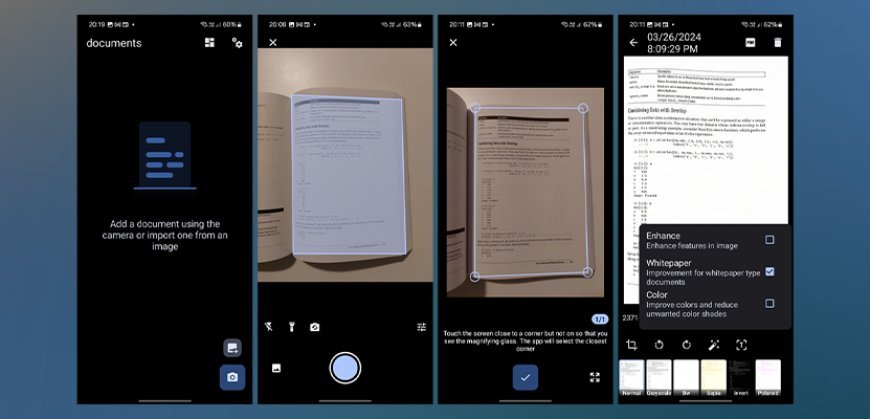Boost Android Performance with These Open-Source Apps in 2025
Explore open-source Android apps in 2025 with hidden features, enhanced privacy, and the potential to replace the apps already on the device.

Beyond the well-known apps on Android, there are open-source projects that quietly shape a better digital experience. They value clarity in design, freedom from ads, and honesty in how they work. Built by developers who value privacy and efficiency, they provide practical solutions without hidden costs or distractions. The following selection highlights eight open-source apps that consistently deliver reliability and value across different use cases.
AdAway
AdAway is a serious tool for anyone who values privacy and performance. By updating host files, it intercepts ad servers before they can load, ensuring system-wide blocking. It supports root for full control but remains usable through VPN mode on non-rooted devices. Power users will enjoy building custom lists and fine-tuning whitelists. The performance gains are measurable: fewer background requests, lower bandwidth usage, and extended battery life. Open-source transparency and community updates seal its place as one of Android’s most reliable ad-blocking solutions.
Automation
It is surprising how the smallest taps add up. One moment it is lowering brightness, the next it is muting notifications, then toggling Wi-Fi. Slowly these tiny tasks drain time and attention. Automation steps in to quietly clear them away, letting the phone run the routine so the mind stays free. Once set, routines execute flawlessly, letting users concentrate on what matters. For professionals, it means smoother workflows. For students, it means fewer distractions. And for everyday users, it means less fuss with constant settings. In the long run, Automation is not only about convenience but about reclaiming productivity.
Librera Reader
For students, Librera Reader doubles as a digital study desk. It reads nearly every format, from textbooks in PDF to lecture notes in RTF and even scanned DJVU files. Annotations, bookmarks, and highlights help with revision. Built-in dictionaries and translation tools simplify complex texts. Its ability to handle large academic PDFs without lag is a relief for research work. With cloud sync, progress stays updated across devices, ensuring seamless study sessions at home or on the go.
OSS Document Scanner
Turning receipts, notes, or assignments into clean digital files no longer requires a bulky scanner or internet connection. OSS Document Scanner makes the phone enough.

With just a snapshot, it sharpens edges, corrects angles, and creates a polished PDF or image. For students, it means having class notes neatly organized. For professionals, it means contracts and IDs saved without worrying about privacy. Everything happens offline, quickly and smoothly, without ads or distractions.
DownloadNavi
DownloadNavi is one of the most underrated open-source tools on Android. It gives serious control over downloads with queue management, segmented speeds, and pause-and-resume support. Power users will appreciate the ability to add custom headers and cookies for authenticated links, while casual users enjoy its clean, ad-free interface. DownloadNavi avoids the unnecessary bulk of other managers, delivering a streamlined and transparent experience. For handling large files, its efficiency makes it indispensable.
SimpleLogin
Every time a newsletter looks interesting, an online store asks for details, or a new app needs an account, the email address goes in. SimpleLogin changes that. It creates quick aliases that keep the real inbox hidden. Messages still arrive safely, and if spam appears, the alias can be deleted instantly. Users can even reply to messages without ever exposing their personal address. Whether it’s a one-time use alias or a permanent one for subscriptions, it keeps email life clean and stress-free.
Fossify File Manager
What makes Fossify File Manager stand out is its balance between simplicity and depth. Unlike most bundled managers that push ads or accounts, Fossify runs cleanly with no distractions. File navigation feels smooth, and categories like photos, audio, and downloads keep everything in order. Extras like ZIP compression, root support, and bookmarks are there for power users without overwhelming casual ones. It’s one of the rare apps that works equally well for someone just finding a picture as for someone digging into system folders.
LocalSend
File sharing has always been a pain point. USB drives get lost, Bluetooth is too slow, and cloud storage eats both time and data. LocalSend offers a cleaner path. Running entirely over local Wi-Fi, it connects devices directly with end-to-end encryption. Android to iPhone? Easy. Laptop to tablet? Done. One moment it’s a giant folder, the next it’s just a single photo. Either way, LocalSend handles it with ease. There are no tricks, no ads hiding in the corner, no premium wall waiting down the line. It’s open-source, light, and built with people in mind. In classrooms, homes, and offices, it becomes less of an app and more of a quiet companion that makes sharing feel natural.
Conclusion
Open-source apps give Android users power over their devices in a way mainstream apps cannot. Free from trackers and bloat, they allow precise file management, secure messaging, task automation, and efficient content consumption, all while keeping the system lightweight and transparent.

Their open nature ensures that data is handled responsibly, while vibrant communities maintain and update features continuously. Trying these eight apps enhances device performance, streamlines everyday tasks, and creates a secure, organized, and reliable user experience.
FAQs
What are open-source apps for Android?
Open-source apps are software applications whose source code is publicly available. They allow transparency, community contributions, and often come without ads, trackers, or unnecessary permissions.
Are open-source apps safe to use?
Yes. Most popular open-source apps are maintained by active communities and undergo regular updates. The transparency of the code makes it easier to spot and fix security issues compared to proprietary apps.
Can open-source apps replace stock Android apps?
Many open-source apps are powerful enough to replace stock apps. For example, Fossify File Manager can replace the default file manager, while Librera Reader offers more flexibility than typical ebook readers.
Do open-source apps require root access?
Most open-source apps work without root access. Some, like AdAway, offer additional features for rooted devices, but core functionality is usually available for standard Android devices.
Are these apps free to use?
Yes, all the apps listed are completely free. They rely on community support or donations rather than ads or subscriptions.

 Admin
Admin